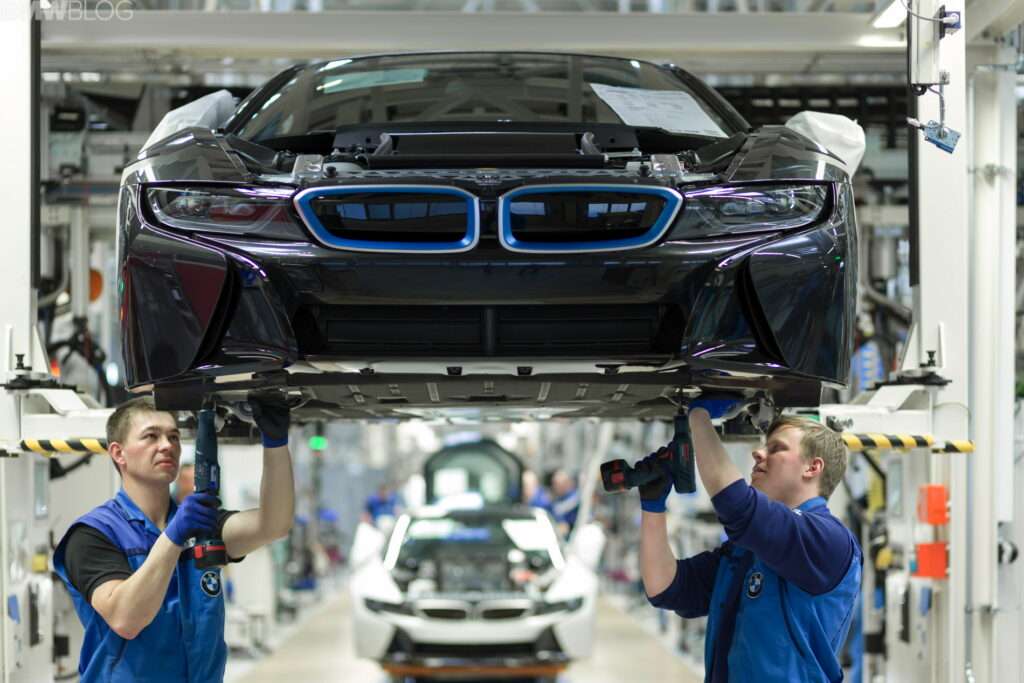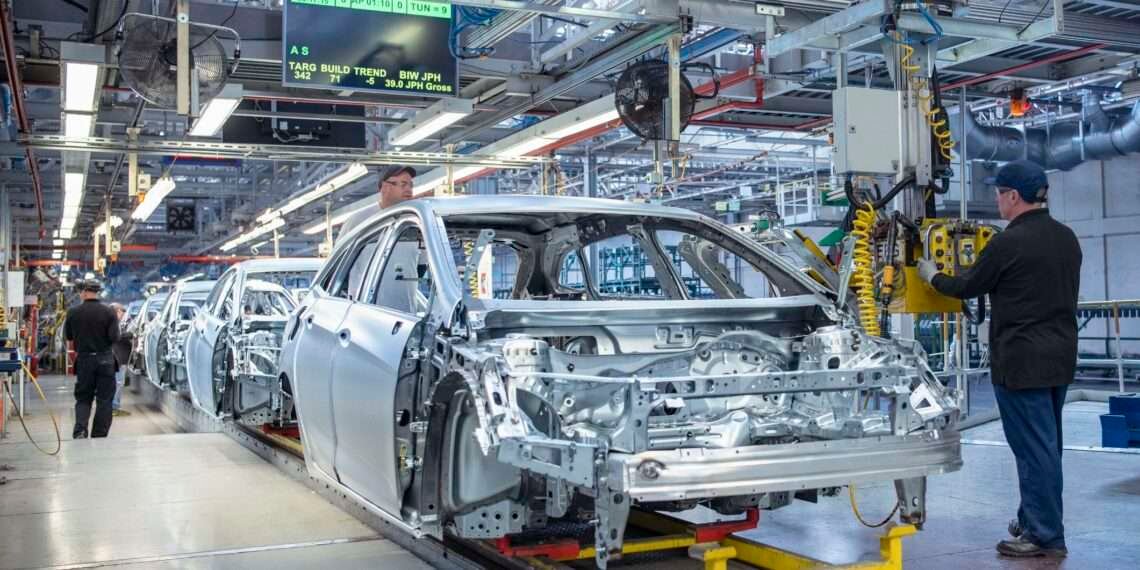German carmakers have bemoaned the impact of the Ukrainian war on production as the conflict started to hit supply chains for Germany’s vast car industry.
For the time being, luxury carmaker Porsche became the latest German manufacturer to announce a temporary pause in production. Delivery bottlenecks have already hit some assembly plants of world No. 2 automaker, Volkwagen.
The spokesperson for the company indicated that from today, Wednesday March 2, Porsche’s factory in Leipzig would stop production, “at least until the end of next week”. The company added that Some 2,500 staff would be transferred to “short-time work,” a government furlough scheme.
“We will plan ahead as far as we can and assess the situation on an ongoing basis … The Volkswagen Group is watching the events in Ukraine with great concern and dismay.”
Volkswagen Spokesperson
The Volkswagen Group– Porsche’s parent company earlier announced on Tuesday, March 1, that production at its main VW site in Wolfsburg would stop because of supply problems. It explained that the company is struggling to obtain crucial wire harnesses as suppliers in western Ukraine have been shuttered by the Russian invasion, forcing them to curtail production.
Rival BMW Also Affected
Rival BMW has also been affected as the company revealed on Tuesday that production would be interrupted in Germany and European plants due to supply bottlenecks. However, its plants in the German state of Saxony are already affected by lack of cables. Where, when and for how long production will be interrupted is still being examined, a spokesperson said.
“Due to supply bottlenecks, interruptions to our production will occur, we are in intensive discussions with our suppliers.”
BMW Spokesperson

A wire harness is a vital set of parts which neatly bundle up to 5 kilometres (3.1 miles) of cables in the average car. It is unique to each car model, and vehicles cannot be built without them.
Suppliers like Leoni which has two wire harness factories in western Ukraine, in a statement, indicated that they are scrambling to “compensate for production losses” and “interruptions in our two plants in Stryi and Kolomyja, triggered by the Russian war of aggression against Ukraine.”
Suppliers including Germany’s Forschner, Kromberg & Schubert, Prettl, SEBN and Japan’s Yazaki have built up a hefty wire harness production sector in Ukraine, which has a lower-cost, skilled work force.
According to an analysis of 2020 Comtrade data by consultancy AlixPartners, wire harnesses were Ukraine’s most critical automotive component exported to the European Union, accounting for nearly 7% of all imports of this product.
Ukrainian government figures show 22 automotive companies have invested more than $600 million in 38 plants – many, though not all producing wire harnesses – employing over 60,000 Ukrainians.
Those plants are close to car factories in Germany and the low-cost manufacturing hubs that German carmakers in particular have built in central Europe. However, Sweden’s Volvo Cars said they do not have harness suppliers in Ukraine.
Sam Fiorani, vice president of global vehicle forecasting at AutoForecast Solutions, stated that carmakers must explore alternative means.
“In cases like this where the issue is not likely to go away quickly, automakers will need to seek out alternative solutions for the short- and mid-terms.”
Sam Fiorani
Fiorani noted that it could take months for suppliers to increase capacity at other locations, requiring factory space, machinery and tools, and workers and financing.
READ ALSO: Foreigners Make a lot of Money on GSE, But Ghanaians Prefer Betting- Ekow Afedzie




















